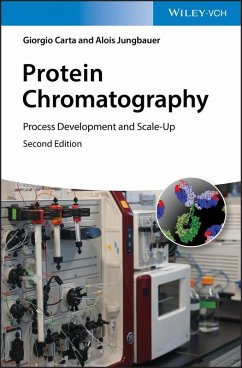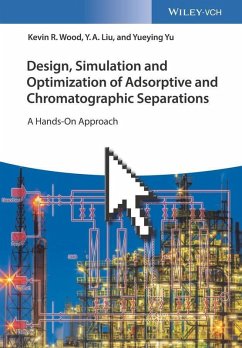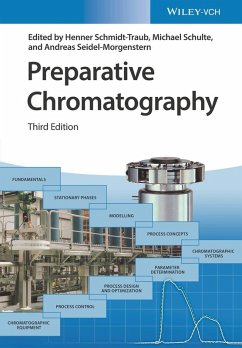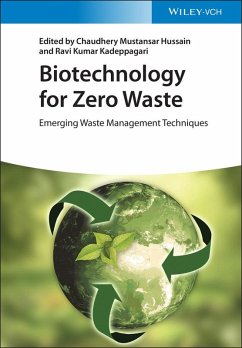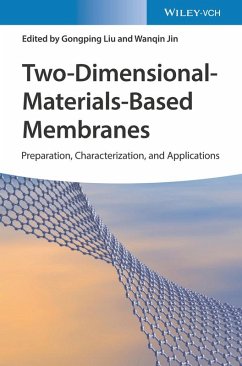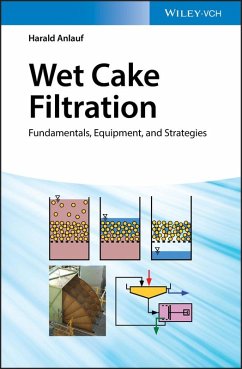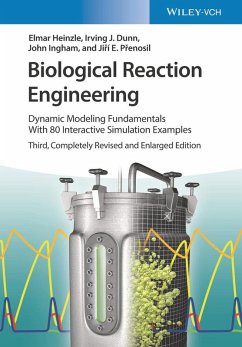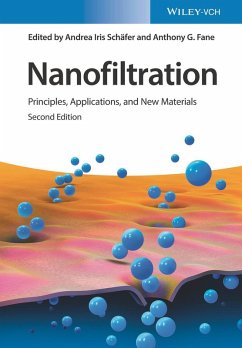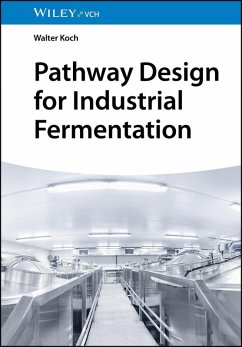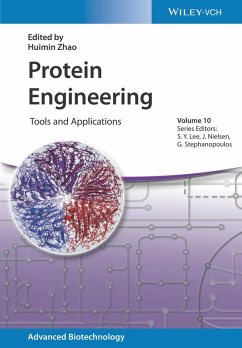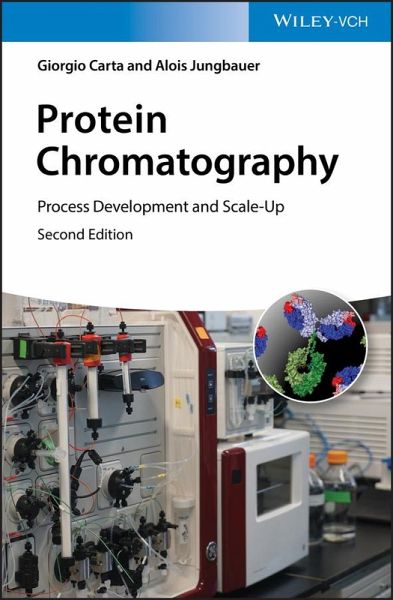
Protein Chromatography (eBook, ePUB)
Process Development and Scale-Up
Versandkostenfrei!
Sofort per Download lieferbar
111,99 €
inkl. MwSt.
Weitere Ausgaben:

PAYBACK Punkte
0 °P sammeln!
An all-in-one practical guide on how to efficiently use chromatographic separation methods Based on a training course that teaches the theoretical as well as practical aspects of protein bioseparation to bioprocess professionals, this fully updated and revised new edition offers comprehensive coverage of continuous chromatography and provides readers with many relevant examples from the biopharmaceutical industry. Divided into two large parts, Protein Chromatography: Process Development and Scale-Up, Second Edition presents all the necessary knowledge for effective process development in chrom...
An all-in-one practical guide on how to efficiently use chromatographic separation methods Based on a training course that teaches the theoretical as well as practical aspects of protein bioseparation to bioprocess professionals, this fully updated and revised new edition offers comprehensive coverage of continuous chromatography and provides readers with many relevant examples from the biopharmaceutical industry. Divided into two large parts, Protein Chromatography: Process Development and Scale-Up, Second Edition presents all the necessary knowledge for effective process development in chromatographic bioseparation, both on small and large scale. The first part introduces chromatographic theory, including process design principles, to enable the reader to rationalize the set-up of a bioseparation process. The second part illustrates by way of case studies and sample protocols how the theory learned in the first part may be applied to real-life problems. Chapters look at: Downstream Processing of Biotechnology Products; Chromatography Media; Laboratory and Process Columns and Equipment; Adsorption Equilibrium; Rate Processes; and Dynamics of Chromatography Columns. The book closes with chapters on: Effects of Dispersion and Rate Processes on Column Performance; Gradient Elution Chromatography; and Chromatographic Column Design and Optimization. -Presents the most pertinent examples from the biopharmaceutical industry, including monoclonal antibodies -Provides an overview of the field along with design tools and examples illustrating the advantages of continuous processing in biopharmaceutical productions -Focuses on process development and large-scale bioseparation tasks, making it an ideal guide for the professional bioengineer in the biotech and pharma industries -Offers field-tested information based on decades of training courses for biotech and chemical engineers in Europe and the U.S. Protein Chromatography: Process Development and Scale-Up, Second Edition will appeal to biotechnologists, analytical chemists, chromatographers, chemical engineers, pharmaceutical industry, biotechnological industry, and biochemists.
Dieser Download kann aus rechtlichen Gründen nur mit Rechnungsadresse in D ausgeliefert werden.




